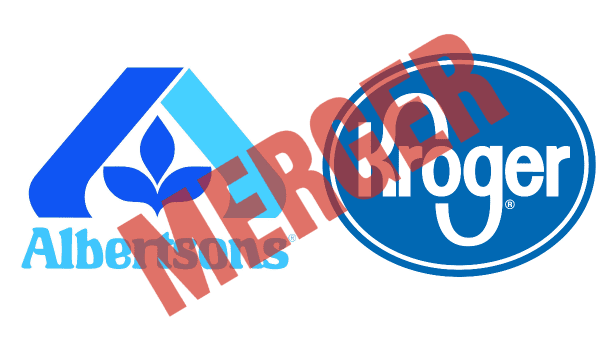As I have said before, it is hard to imagine that the Federal Trade Commission (FTC) and the Department of Justice (DOJ) will approve the controversial proposed merger of supermarket giants Kroger BB #:100073 and Albertsons BB #:193326.

FTC commissioner Lina Khan was appointed to her post by the Biden administration partly because of her sharp criticism of the Albertsons-Safeway merger of 2016 in a much-discussed paper published in Harvard Law and Policy Review in 2017. Kroger, Albertsons, and Lina Khan – Produce Blue Book
As I’ve also noted, the Biden administration is seeking to turn back 40 years of antitrust policy whereby fair competition (the original goal of antitrust laws) was sidelined in favor of real or imagined benefit to consumers.
New draft guidelines issued by the FTC and the DOJ on July 19 only reinforce my belief that the federal government will refuse to permit the merger. Here’s a link to the guidelines in full. Draft FTC-DOJ Merger Guidelines for Public Comment (2023) For a digest, see here. FTC and DOJ Seek Comment on Draft Merger Guidelines | Federal Trade Commission
Here’s the first guideline: “Mergers should not significantly increase concentration in highly concentrated markets.”
This doesn’t sound good for the proposed merger. A Forbes article criticizing the proposed merger observed, “There are already 30% fewer grocery stores than a few decades ago and most major metropolitan areas (with the exception of New York City) are heavily concentrated among just a handful of grocery chains. This includes Seattle, Denver/Boulder, Cincinnati, Houston, Dallas/Fort Worth, Salt Lake City, Boston, Washington D.C., Los Angeles, and San Francisco, which have heavy market shares in Kroger and/or Albertsons banners.” Why A Kroger/Albertsons Merger Is A Bad Idea (forbes.com)
Other guidelines:
“2. Mergers should not eliminate substantial competition between firms.”
“6. Vertical mergers should not create market structures that foreclose competition.”
“7. Mergers should not entrench or extend a dominant position.”
“8. Mergers should not further a trend toward concentration.”
I am no expert in antitrust law, but I can’t read these guidelines without thinking that the authors had Kroger and Albertsons in mind when they wrote them.
Supermarket News asked major industry leaders what they thought of the merger. What you think about: Kroger (supermarketnews.com)
Here’s what Tom Church, chairman of Church Brothers Farms in Salinas, CA BB #:161800, had to say:
“I know that many people in the produce industry think the merger would put too much buying power in fewer hands and that would put pressure on farm prices. My feeling is the cat is already out of the bag. Walmart and Costco already have a huge market share and the merger would put Kroger/Albertsons in a more competitive position. I think the business is stronger and better with bigger players. I have been in produce for over 50 years and with technology it has allowed us to do more and in less time. Some will do better than others but getting bigger through consolidation is natural. If it can happen it will happen.”
Forbes’s point of view: “The grocery industry is far too concentrated, and suppliers, employees and consumers would all benefit from disaggregating the grocery giants.”
The public has till September 18 to comment on the draft guidelines. Fact Sheet: 2023 Draft Merger Guidelines for Public Comment (ftc.gov)



